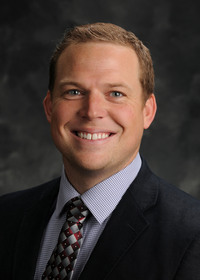Information Possibly Outdated
The information presented on this page was originally released on February 28, 2014. It may not be outdated, but please search our site for more current information. If you plan to quote or reference this information in a publication, please check with the Extension specialist or author before proceeding.
MSU experts hear growers' education, research needs
BILOXI – A group of about 120 coastal-area agriculture producers met Feb. 25 in Biloxi for the Coastal Research and Extension Center’s Producer Advisory Council to help Mississippi State University experts understand growers’ needs.
The annual meeting helps MSU Extension Service and Mississippi Agricultural and Forestry Experiment Station agents, specialists and researchers allocate time and funding to education and research efforts.
“Our growers really drive this process, and we welcome your feedback,” said Patricia Knight, head of the MSU Coastal Research and Extension Center. “We need your input to do valid research and deliver the educational programs you need.”
The university generates research-based data that farmers, nurseries, livestock producers and other businesses need.
“We have a commitment to you, and we need to hear from you to provide the knowledge you need to make your business profitable,” said Reuben Moore, associate director of the MSU Mississippi Agricultural and Forestry Experiment Station. “Mississippi State ranks ninth for agricultural expenditures among all research colleges in the United States. That should give you an idea of the commitment we have to Mississippi growers.”
The 11 commodity groups represented at the meeting were commercial ornamental horticulture, fruits, horses and small ruminants, cotton and corn, forestry, seafood and aquaculture, home horticulture, vegetables, livestock, soybeans and peanuts, and apiculture or beekeeping.
Joe Street, associate director of MSU Extension Service agricultural programs, said producer input helps administrators decide how best to spend their money.
“We are listening to you,” Street said. “Your participation in these meetings has resulted in our hiring a bee specialist and a peanut specialist. We are here to serve you, but you have to help us understand what benefits you most.”
The commercial ornamental horticulture group asked for more research on pest-resistant, disease-resistant and low-maintenance plant varieties. They want education to help them market to today’s gardeners. They also would like a way to learn about current research work and results.
Fruit producers requested continued research on better controls for the spotted-wing drosophila fly, which causes significant damage to blueberries. They would also like to have more information on high tunnels for fruit production.
The horse and small ruminant group would like continued research on parasite control and nutrition programs for ponies. They want education on proper foot care and marketing small ruminants.
Soybean and peanut farmers want continued variety trials and research on cover crops that could help manage herbicide resistance.
The forestry group asked for an educational program for beginners and help understanding the best way to market their product.
The seafood and aquaculture group said research on recycling shrimp shells for packing materials would be helpful. They also want research on aquaponic systems, which can be used for growing fish and vegetables.
The home horticulture group asked for education and research on organic gardening, insect control, and hybrid tea roses and patio roses.
Vegetable growers want watermelon and heirloom vegetable variety trials. They also asked for more research on organic production methods and disease and pest control. They want educational programs on water management and crop insurance.
Livestock producers asked for research on the cost and performance of feed programs and continued youth education.
Corn and cotton farmers requested continued nematode research.
The apiculture group wanted classes for beginning and experienced beekeepers. They asked for classes on proper use of insecticides for beekeepers and the general public and help increasing their presence on social media and marketing products.
For more information, visit Coastal Mississippi Research and Extension Center.




